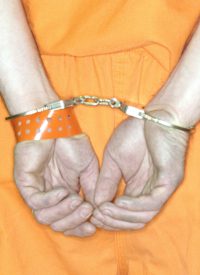
The state must either release the prisoners or find other ways to alleviate the seriously overcrowded conditions, such as building additional prison space, sending prisoners to other states or housing them in county jails. Acknowledging the state's fiscal crisis, Justice Anthony Kennedy noted in writing for the court there is "no realistic possibility that California would be able to build itself out" of its prison deficiencies.
Kennedy was once again the "swing vote" on the often bitterly divided court, this time siding with the liberal bloc made up of Ruth Bader Ginsburg, Stephen Breyer, Sonia Sotomayor, and Elena Kagan. Justice Antonin Scalia issued a scathing dissent, which was joined by Justice Clarence Thomas. Justice Samuel Alito also wrote a strongly worded dissent, joined by Chief Justice John Roberts.
Kennedy supplemented his opinion with photos of rows of double-deck bunk beds crowded closely together in a gymnasium converted into a dormitory and of prisoners confined in what Kennedy described as "telephone booth-sized cages without toilets." The suicide rate in California prisons is 80 percent higher than the national average for inmates, he said. The lower court ruling stated as "an uncontested fact" that "an inmate in one of California's prisons needlessly dies every six or seven days due to constitutional deficiencies."
"A prison that deprives prisoners of basic sustenance, including adequate medical care, is incompatible with the concept of human dignity and has no place in civilized society," Kennedy wrote. But Scalia and Alito, each claiming 46,000 as the number of prisoners likely to released, warned of dangers to the public of turning a loose a large number of convicts. Scalia called the number "the equivalent of three army divisions." While conceding "particular prisoners received shockingly deficient medical care," Alito argued against giving undue weight to "anecdotal evidence." Scalia, in his biting dissent, argued that the prisoners in need of medical attention would not likely be among those released. They will be "just 46,000 happy-go-lucky felons fortunate enough to be selected," said Scalia, who predicted many will be "fine physical specimens who have developed intimidating muscles pumping iron in the prison gym."
Scalia took the unusual step of reading his dissent from the bench, while Kennedy, the New York Times reported, stared straight ahead, "his face frozen in a grim expression."
The decision upheld a ruling by a special three-judge federal court requiring a prison population of no more than 110,000, or not more than 137 percent of the system's current capacity. California now has 140,000 in state prisons, the Times reported, but has had as many as 160,000 in recent years.
In remanding the case to the lower court, Justice Kennedy said at the conclusion of his opinion that the court could be flexible concerning the means by which the prison population should be reduced. But Scalia suggested the "bizarre coda" is "nothing more than a ceremonial washing of the hands — making it clear for all to see, that if the terrible things sure to happen as a consequence of this outrageous order do happen, they will be none of this court's responsibility."
Alito accused the court's majority of "gambling with the safety of the people of California" and ended his dissent with a grim warning. "I fear that today's decision, like prior prisoner-release orders, will lead to a grim roster of victims," he wrote. "I hope that I am wrong. In a few years, we will see."



